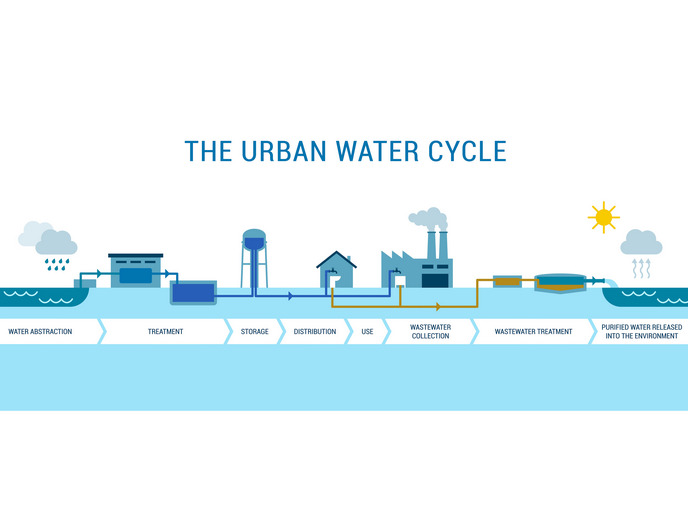Helping cities rethink their water infrastructure
As urban populations grow, so do problems such as water scarcity and inadequate and unsafe water supply. To meet their rising water needs, many cities rely on water supply infrastructure that is difficult or costly to adapt, expand or replace. For cities to be more resilient to climate change and the pressures it puts on their water systems, they need to redesign their urban water infrastructure. Launched in 2021, the EU-funded MULTISOURCE(opens in new window) project is developing NBSs for urban water treatment, storage and reuse. NBSs use processes found in nature to tackle societal challenges such as climate change, human health and water security in a way that benefits both people’s well-being and biodiversity.
Testing different scenarios
MULTISOURCE is running seven pilot programmes on the treatment of a wide range of urban waters. Six pilots are taking place in Europe – Lyon (France), Leper (Belgium), Merone (Italy), Girona (Spain), Leipzig (Germany) and Oslo (Norway) – and one in the United States (Bozeman). The pilots address challenges such as the treatment and reuse of domestic wastewater and combined sewer overflow, greywater reuse, street runoff treatment and reuse, stormwater retention and blackwater treatment. A policy brief(opens in new window) published on the MULTISOURCE website outlines the project’s objectives. Scientific objectives include removing pollutants, pathogens and other substances from urban waters, carrying out risk assessments, optimising the water treatment efficiency of enhanced natural treatment systems and evaluating their impact, identifying innovative partnerships and strengthening international collaboration. Technical objectives include creating an open-source mapping system to identify problem areas in urban sewer networks, developing a tool to enable multisectoral technology selection, anticipating scenarios to provide prompt solutions and providing guidance on NBSs for water treatment worldwide. By promoting NBSs that can capture CO2 and lessen the pressure on urban sewage systems, MULTISOURCE is expected to not only help mitigate climate change but also help cities adapt to it. A study(opens in new window) supported in part by MULTISOURCE focuses on the design of water reuse networks in cities using a decision-support tool that can automatically compute the best reclaimed water network for any scenario. “The tool provides not only the maximum amount of served reclaimed water per unit of invested cost, but also the length and diameters of the pipes required, the location and size of storage tanks, the population served, and the construction costs, i.e. everything under the same architecture,” according to the authors of the study published in the journal ‘npj Clean Water’. Working with local, national and international stakeholders, MULTISOURCE intends to demonstrate a variety of enhanced natural treatment solutions for a wide range of urban waters. As stated in the policy brief, it also aims “to develop innovative tools, methods, and business models that support citywide planning and long-term operations and maintenance of nature-based solutions for water treatment, storage, and reuse in urban areas worldwide.” The MULTISOURCE (ModULar Tools for Integrating enhanced natural treatment SOlutions in URban water CyclEs) project ends in 2025. For more information, please see: MULTISOURCE project website(opens in new window)



